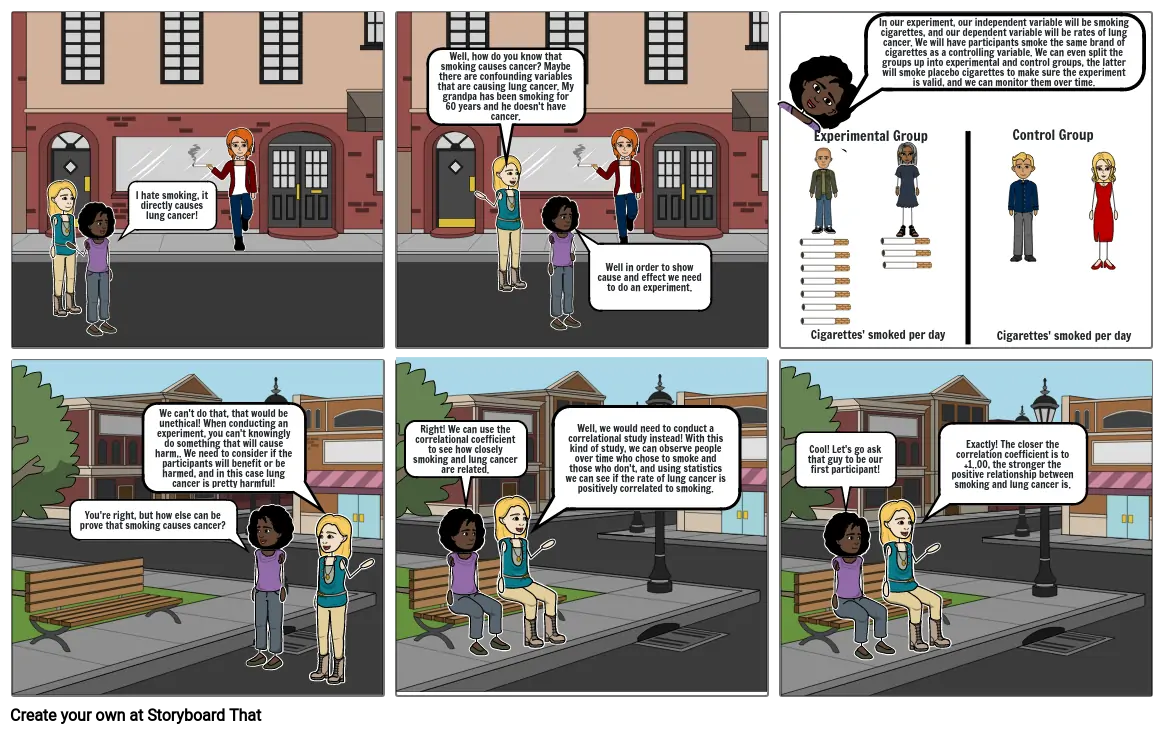PSYCO 105 PCA #1

Storyboard Text
- I hate smoking, it directly causes lung cancer!
- Well, how do you know that smoking causes cancer? Maybe there are confounding variables that are causing lung cancer. My grandpa has been smoking for 60 years and he doesn't have cancer.
- Well in order to show cause and effect we need to do an experiment.
- Cigarettes' smoked per day
- Experimental Group
- In our experiment, our independent variable will be smoking cigarettes, and our dependent variable will be rates of lung cancer. We will have participants smoke the same brand of cigarettes as a controlling variable. We can even split the groups up into experimental and control groups, the latter will smoke placebo cigarettes to make sure the experiment is valid, and we can monitor them over time.
- Cigarettes' smoked per day
- Control Group
- You're right, but how else can be prove that smoking causes cancer?
- We can't do that, that would be unethical! When conducting an experiment, you can't knowingly do something that will cause harm,. We need to consider if the participants will benefit or be harmed, and in this case lung cancer is pretty harmful!
- Right! We can use the correlational coefficient to see how closely smoking and lung cancer are related.
- Well, we would need to conduct a correlational study instead! With this kind of study, we can observe people over time who chose to smoke and those who don't, and using statistics we can see if the rate of lung cancer is positively correlated to smoking.
- Cool! Let's go ask that guy to be our first participant!
- Exactly! The closer the correlation coefficient is to +1..00, the stronger the positive relationship between smoking and lung cancer is.
Vytvořeno více než 30 milionů Storyboardů

